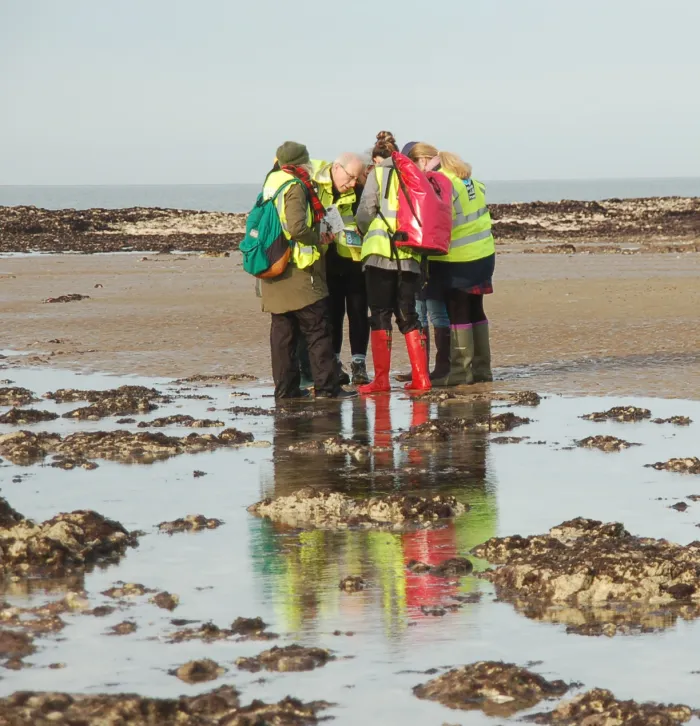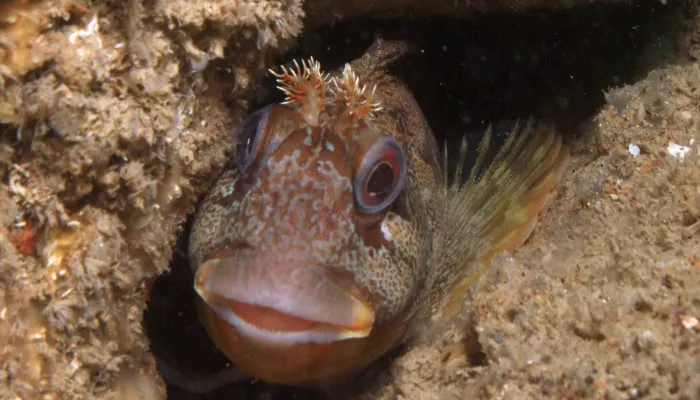Our seas are home to an astonishing array of wildlife which is sadly under threat from a range of pressures like overfishing, pollution and offshore developments. A well-connected network of protected areas was hoped to provide sanctuary for our marine life whilst giving it the space it needs to adapt through the climate crisis.
To date, the Government has formally designated 10 recommended Marine Conservation Zones (MCZs) around Kent.
Kent Wildlife Trust volunteer survey programmes provide vital data
Grateful thanks go to Kent Wildlife Trust’s Seasearch and Shoresearch volunteers who have collected vital data to support designation of Kent’s MCZs and continue to collect data to monitor them.
Kent Shoresearch data was used as evidence for all the tranches of Marine Conservation Zones. For each of the tranches there was a public consultation and Kent Wildlife Trust submitted additional Shoresearch data as evidence to back up the designation of the proposed sites. Here at KWT we did targeted surveys to fill gaps in evidence in advance of each of the tranches to try to ensure that lack of evidence could not be used as a reason not to designate any of KWT recommended sites.
Kent’s special marine zones
Kent Wildlife Trust has been hugely heartened by our many supporters whose petition signatures and carefully-worded letters helped to secure the designation of the first MCZs around Kent. Thanks to your support, the following are now Marine Conservation Zones:
Swanscombe, Medway Estuary, Swale Estuary, Kentish Knock East, Thanet Coast, Goodwin Sands, Offshore Foreland, Dover to Deal, Dover to Folkestone, and Folkestone Pomerania.
Highly Protected Marine Areas (HPMA’s)
Since the last MCZ’s were designated in 2019 it has become clear that our seas are still under threat. The government is now trialing Highly Protected Marine Areas (HPMA’s) which are similar to Marine Conservation Zones but they ban all harmful activity within the HPMA to ensure the seabed, habitats and species within those areas are fully protected.
Useful resources
Why protect marine areas?
All our lives are dependent on the bounty of the seas, from the food we eat to the air we breathe and the climate we inhabit. The seas around Kent are home to a wonderful diversity of life, from sponges to seahorses, from starfish to seals. This wildlife should be safe, but sadly it is under increasing threat from over-exploitation and damage. Our seas are in desperate need of protection.
Protected areas at sea, including the new HPMA’s, form one of the most crucial tools for conserving marine wildlife, providing it with much-needed sanctuary.
Marine Conservation Zones form an important part of the national network of marine protected areas around England.

How can I help?
Shoresearch is a great way to contribute to the protection of your local marine environment whilst learning about all the things that live on the seashore.

